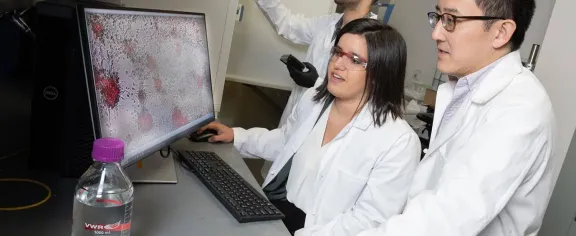2025-12-02
Tariffs, shipping delays, and rising costs are squeezing toy makers—and parents are scrambling to find gifts, as Georgia Tech experts weigh in on the disruptions.
2025-12-02
Modern manufacturing blends AI, automation, and sustainability to create meaningful careers and economic resilience.
2025-11-24
By uniting expertise and resources, Georgia’s leading institutions are creating practical solutions to improve health outcomes across the state.
2025-11-21
The Tower, Georgia Tech’s undergraduate research journal, is seeking submissions from students across all disciplines who want to have their work published in a campuswide platform.
2025-11-20
Georgia Tech has been ranked 7th in the world in the 2026 Times Higher Education Interdisciplinary Science Rankings
2025-11-18
Georgia Tech’s research and talent are helping PBS Aerospace launch a new era of aerospace manufacturing in Roswell, Georgia — advancing U.S. defense innovation and fueling the state’s growing leadership in drone and propulsion technology.
2025-11-13
China’s Shenzhou-20 spacecraft took a hit from a piece of space debris floating through orbit, causing Chinese officials to delay the spacecraft’s return from its Tiangong space station in early November 2025.
2025-11-13
China’s Shenzhou-20 spacecraft took a hit from a piece of space debris floating through orbit, causing Chinese officials to delay the spacecraft’s return from its Tiangong space station in early November 2025.
2025-11-13
Envision a time when hundreds of spacecraft are exploring the solar system and beyond. That’s the future that NASA’s ESCAPADE, or Escape and Plasma Acceleration and Dynamics Explorers, mission will help unleash.
2025-11-06
Each year, more than 100 undergraduates conduct neuroscience research in labs across campus.







